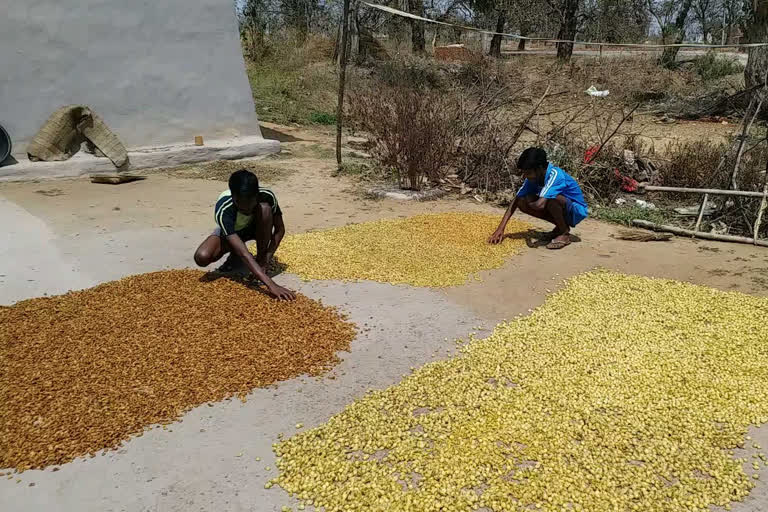Latehar (Jharkhand): In Jharkhand, 'Mahua’ is not just a fruit but a source of life for tribals. It has become a part and parcel of the lives of the people of Latehar district as well. This is the traditional way of earning their livelihood and also meet their financial needs. As there are no major means of employment in tribal areas, most people are dependent on making Mahua fruit-based liquor. During the season, they collect the fruit for 15 to 20 days with the help of all family members. It does not cost them much except the hard work of 15 to 20 days, which helps them make some good money to meet their essential needs.
Wine and sweets are made from Mahua
‘Mahua’ is quite a rich tree in more than one way. Its flowers, leaves, fruits and twigs are all used by tribals in their lives. The branches of the Mahua tree are used in marriages and other festivals. They eat the fruit, make sweets and liquor and extract oil.
Mahua – A source of good income
These days, the villagers in the Latehar district are busy collecting Mahua fruits throughout the day. The tribals are earning well without investing much capital. Mahua is produced in the Latehar district of Palamu division of Jharkhand. There are a large number of Mahua trees in the forests around this region. For this reason, people here earn a good income from the byproduct of this fruit.
Bumper Mahua production expected this year
This year's Mahua crop is expected to be quite a bumper as compared to last year. In 2020, production was greatly affected due to bad weather. The villagers could not even get to the markets to sell the crop due to the lockdown, and this had caused them financial loss. This time, the weather is completely favourable due to which bumper production of the fruit is expected. Currently, the fruit is sold for Rs 40 to Rs 48 per kg.
The need for a better market for Mahua
Nirdosh Gupta, who deals in the trade of Mahua fruit, told ETV Bharat that the production is likely to be better this year than last year. Mahua's main markets are Ranchi, Raipur and Varanasi. The fruit is also sent to West Bengal on a large scale every year. Deputy Commissioner of the district Abu Imran said he will come out with a plan to provide a better market for the sale of Mahua fruit, after meeting with officials of the Agriculture and Forest Department.



